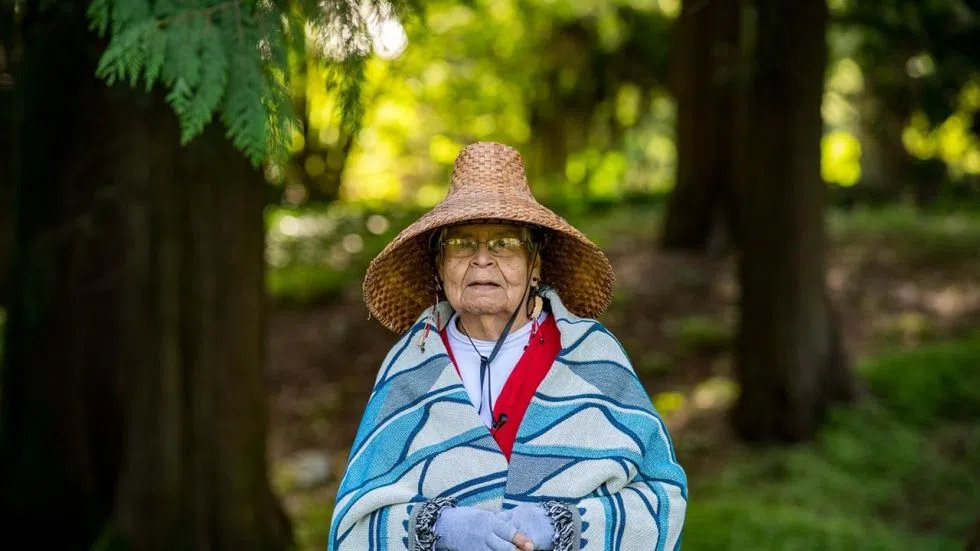
Honorary degree for B.C. elder’s efforts to keep her Indigenous language alive
ROSEDALE, B.C. — She’s the last surviving fluent speaker of her Indigenous language, but Elizabeth Phillips says she’s more confident now than ever that her mother tongue will survive.
The 79-year-old Sto:lo Nation elder is scheduled to receive an honorary degree Wednesday for her efforts to preserve the Halq’emeylem language of the Indigenous people who live in British Columbia’s Fraser Valley and Fraser Canyon areas.
“I do believe it is quite an honour,” said Phillips, who joked she was nervous about the ceremony and wanted to ask the University of the Fraser Valley if she “may back out now.”
Phillips, whose Sto:lo name is Siyamiyateliyout, will be presented with an honorary doctor of letters degree at the university’s convocation ceremony.



